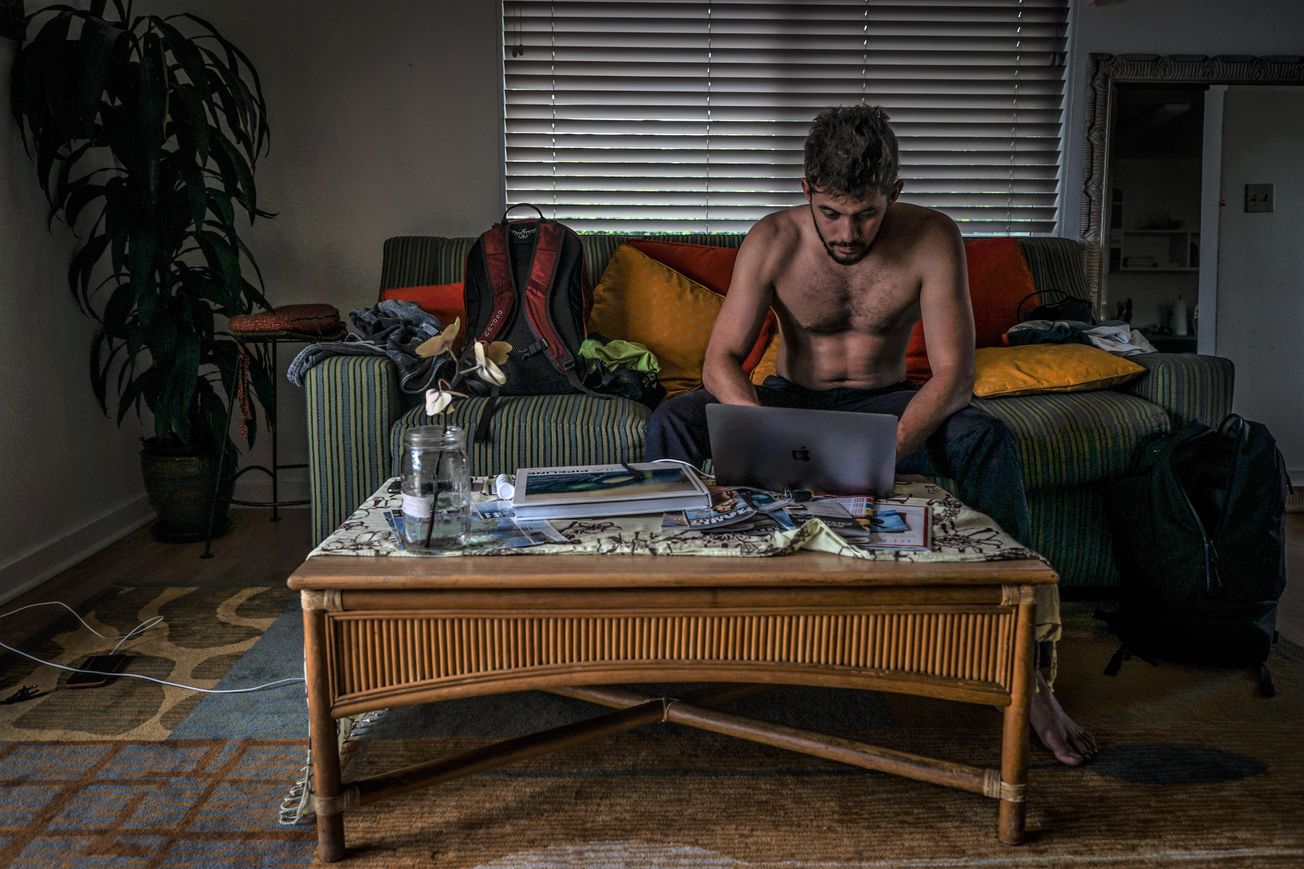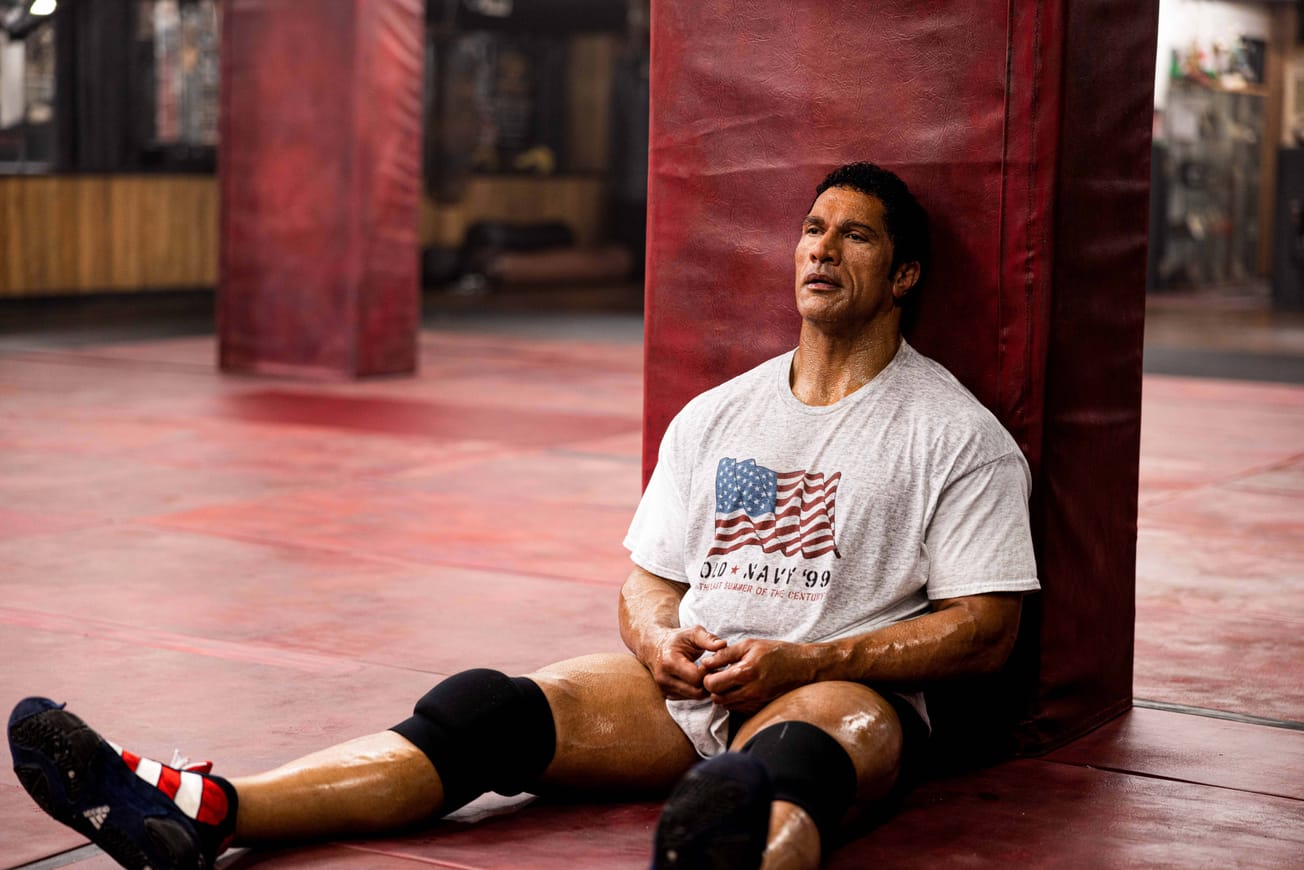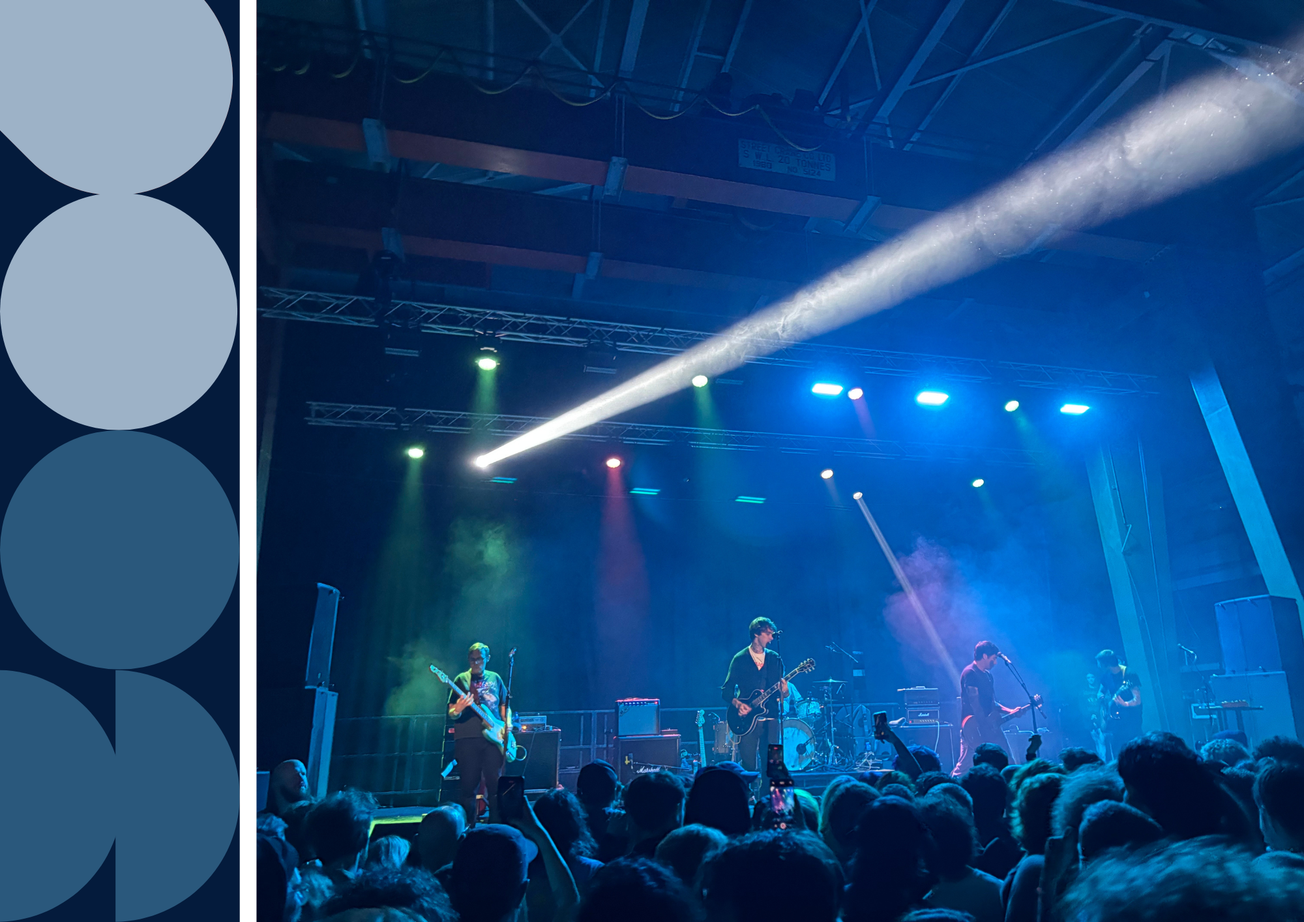By Patrick Sullivan, Film & TV Editor
The British response to teenagers being able to easily access online pornography has been to simply shun it into the dark trenches of the internet. Instead, the format should be seen as an opportunity to teach safe and responsible sexual practice.
According to the 2014 British sex survey, 56 per cent of adults watch porn at least occasionally - a curious but barely shocking statistic. However, a 2016 NSPCC online survey with Middlesex University found 53 per cent of 11-16 year olds had watched sexually explicit material online, and 94 per cent of those had come across it by the age of 14. Looking at the 15-16 age range, who are at a key point of puberty and will be inevitably curious, over half of the 228 participants actively searched for and found porn.
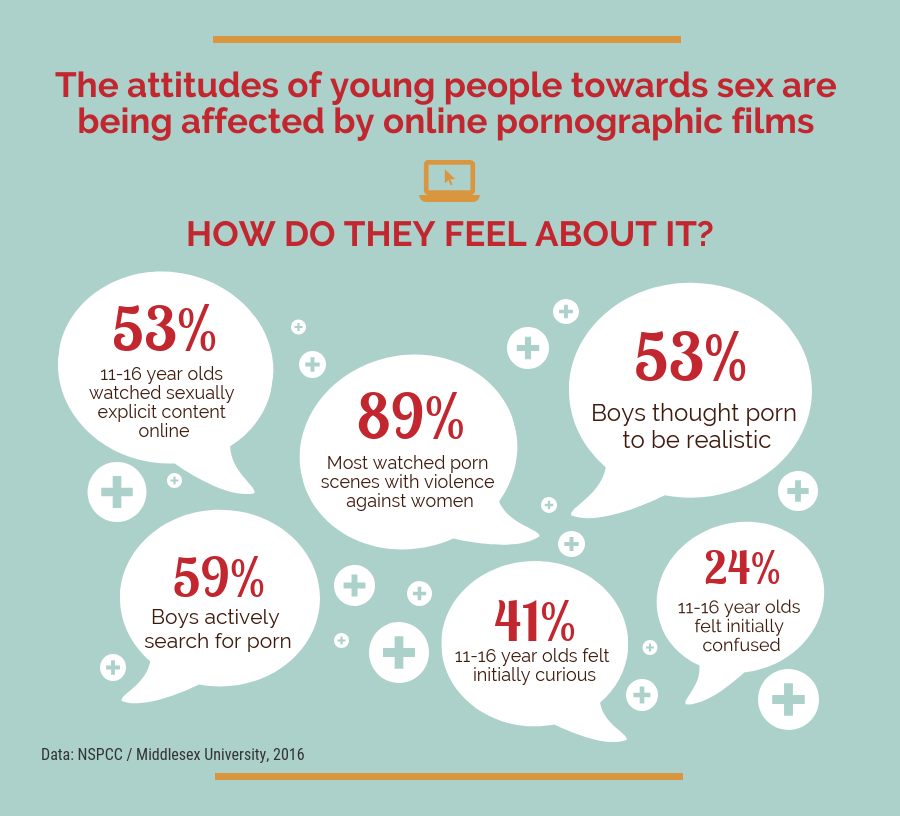
Epigram / Patrick Sullivan
The survey produced a whole bunch of parameters around the topic, but the simple, unsurprising conclusion is that online porn is a clear presence in young people’s lives. The action taken by the government was to introduce a new law for age verification to enter such sites, which was supposed to be launched in April of this year but has since been indefinitely delayed. The problem is the internet is an exponentially expanding global domain, and such a tool, even if it finally launches, would have loopholes even as simple as a horny, tech savvy 15 year old pinching their dad’s credit card.
The authorities believe they can banish porn in the same way as recreational drugs, but the internet is open access and intuitive to recent generations. Ignoring or denying its existence and the desire for it is, arguably like the effects of criminalising drugs, more harmful for the users. The difference between online pornography and drugs is the influence watching porn has on a less taboo aspect of life - our real sexual activity.
53 per cent of boys in the survey believed porn to be a realistic depiction of sex, compared to 39 per cent of girls. When nearly 90 per cent of the most watched porn scenes contain violence towards women, is it a surprise that the young men in this society do not understand the importance of sexual consent? The influence of early sexual impressions being unregulated online content is what leads to a systemic culture of misogyny, sexual abuse, and rape.
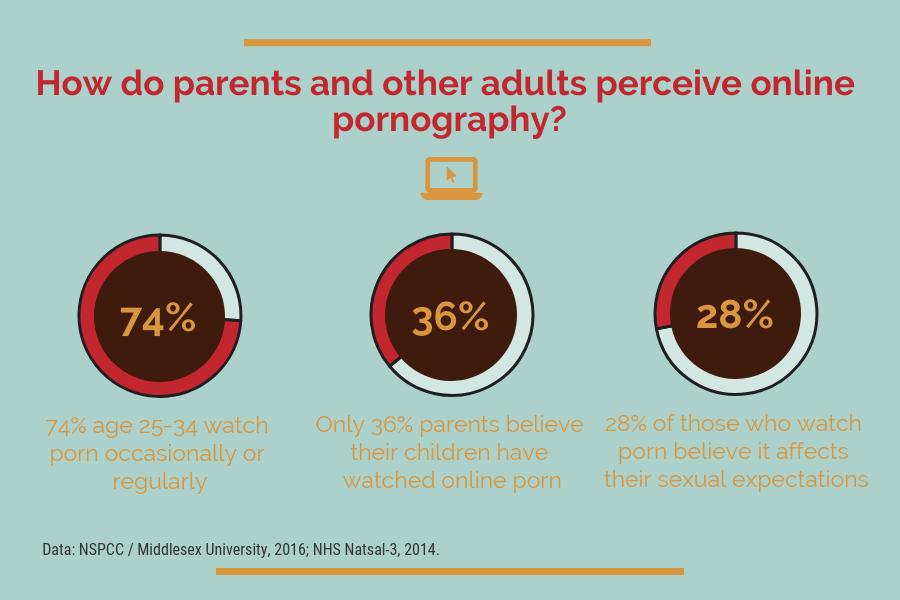
Epigram / Patrick Sullivan
It is an obvious assumption that the disturbed and unrealistic subject matter of even mainstream online porn - not only violence, but incest, teachers/students, office relations, and hardcore sex activities - is a cause of unhealthy sexual habits, expectations, attitudes and behaviour later in life. But we must also hold sexual education in both schools and universities accountable for failing to fully acknowledge the role online porn plays in young people’s understanding of sex in the age of the internet.
Experiences are variable: the specialist sexual consent workshop I had during Freshers’ Week (2015) used a great analogy of ‘drinking tea’, but sex-ed curriculums at primary and secondary schools are largely delivered by non-specialist teachers with biases and sensitivities around the topic. The curriculum is also undefined, with policies being written by individual schools, and parents can withdraw their children from receiving the classes. More tellingly for this discussion, I can’t recall an educational session ever explicitly mentioning the impact of learning about sex through a screen.
The concept of filming sex itself is not harmful, it is the ideas that many online porn outlets perpetuate which are. Sex within the regular film or television industries is not wholly realistic nor responsible with its content - see some scenes of Game of Thrones (2011-) for an easy example - but at least they are being produced by culpable companies and subjected to certification. Is it outrageous to suggest a trustworthy content creator in the UK should partner with the sexual education curriculum to produce safe, free-to-access, online pornography for curious teens and self-loving adults alike?
here’s your not so friendly reminder that porn is awful for you and anyone you love and the “actors” and that porn contributes to higher demands in sex trafficking and that game of thrones is porn with a plot and you probably shouldn’t be watching it
— leah (@leah_johnson) November 21, 2018
Certainly, risqué films, such as Lars Von Trier’s Nymphomaniac series, riled more conservative viewers with its explicit depiction of sex, but the central premise of the film is sex addiction. How are we supposed to understand the subject without seeing the act itself? If there was an government supported, responsible porn outlet on the internet which also published educational information, teenagers - and adults - would be more open and encouraged to discuss sexual misconceptions. There would be less hiding of our confusion, and society could confront what should be deemed acceptable for our viewing.
Now, here’s where my entrepreneurial mind starts running at an uncontrollable pace. If, say the BBC were to take ownership of this website, only the genuinely disturbed would trawl through the dark depths of the internet in search of masturbation inspiration because there would be a trusted source of quality content. It could do the equivalent of what Spotify and Netflix did to Limewire. However unlike those streaming services - to ensure it is both responsible and educational and doesn’t follow the money driven, exploitative US porn industry - it should be free-to-view.
Instead, surrounding material on the website could include information and publish articles on a wide ranging set of issues underrepresented in standard education
No more computer viruses, no more dodgy webcam advertisements, no more exploitation and abuse of actresses. Instead, surrounding material on the website could include information and publish articles on a wide ranging set of issues underrepresented in standard education: relationships, STIs, periods, contraception methods and risks, body image, sexual consent, domestic abuse, safe experimentation, LGBTQ+ sex, transgender support, genital hygiene, general puberty, sexual harassment, the list could go on and on. The vast majority of the adult population who watch porn and the confused teenagers lacking dependable sex-ed in schools would all be implicitly learning more about these subjects in the same place as the trustworthy, high quality sexual streaming service they seek.
Believe me - I realise the sheer ludicrousness of the concept. But the more time spent investigating problems caused by the influence of porn on young people’s sexual behaviours, the clearer it becomes that it cannot just be dismissed to oblivion. The education authorities need to acknowledge its existence and implement more revolutionary ways to align the effects with the principles of safe sex.
Epigram Film & TV’s ‘Sex In Film’ series is featuring in Issue 332 and online throughout November.
Featured Image: Unsplash / Aaron Thomas
Do you think a radical idea such as 'BBC Porn' is needed to improve sex education and curb the detrimental effects of current online pornography?
Facebook // Epigram Film & TV // Twitter

